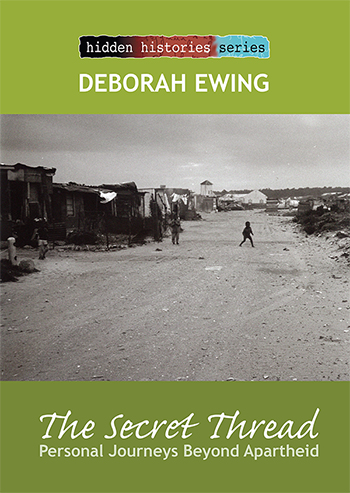
 In Women’s Month, Unisa Press celebrates women who have published books from their research material this year.
In Women’s Month, Unisa Press celebrates women who have published books from their research material this year.
Deborah Ewing is the author of The secret thread: Personal journeys beyond apartheid, published by Unisa Press as part of its Hidden Histories Series, and now available to the public, fellow researchers, and scholars. A social history of the Christian Fellowship Trust (CFT) study tours over 40 years, the book is a historical reflection on facing the timeless challenges of being human in relation to other humans.
Co-founded by Beyers Naudé in 1964, the CFT, a ‘legally subversive’ organisation, drove a ‘Trojan Horse’ into the citadel of apartheid theology by means of the strategy of exposing people through these tours. The idea of travel is used as a transforming experience, more powerful than indoctrination: ministers of the Dutch Reformed Church and other individuals are exposed to life that questions everything they had been taught about skin colour as a marker of human worth and face contradictions that highlight the inequality and conflict of global injustices.
Ewing’s involvement with the CFT dates back to 1988, when she was asked by the Anti-Apartheid-Movement (AAM) in London to make the four-month investigative tour of South Africa to report on the work of the alternative media under the State of Emergency. At the request of Naudé, CFT funded the tour so that it could not be linked to the AAM. On her return, Ewing became a member of the CFT UK Committee.
The secret thread explores the value of solidarity and the redemptive power of taking responsibility for participation in systems that benefit the few no matter the suffering of the many. It affirms the human need to travel and to know our common history as essential to the pursuit of justice and reconciliation.
It is a strand of human history connecting people across barriers created by apartheid. It is a thread that drew people together, forcing them to face painful realities. It runs through the informal settlements, townships, suburbs, and Bantustans of South Africa, across the deserts and villages of Namibia, and the rural towns and inner cities of Europe.
One reviewer of the book described Ewing as “an author who is well versed with biblical matters as much as regional and global history and politics. She provides valuable details on theological considerations, how they tie into people’s actions and events.
“She is a competent scholar who has researched her topic thoroughly by extensively using source materials, as well as interviewing many people on their reports at times, long after they wrote them. The secret thread is not merely the story on how the tour opened the eyes of South Africans from various backgrounds, but also how it opened the eyes of international citizens, particularly the UK and other European countries.”
A second reviewer found the contents of this book to be of interest to South African historians, particularly those who study the role of religious communities in social and political transformation.
Ewing has been involved in research and writing for the last twenty-odd years as the Director of iMEDIATE Development Communications, with a focus on human rights, children's participation, and HIV/AIDS interventions. She is the programme manager, researcher, writer and advocate for inclusive human rights and development. She is Durban based and currently an Advocacy Manager for the Aids Foundation of South Africa; managing the design and development of joint advocacy campaigns with civil society organisations participating in the Sex Rights Africa Network to realise comprehensive Sexual and Reproductive Health Rights (SRHR) for all.
*Compiled by Sharon Farrell
Publish date: 2018-08-13 00:00:00.0